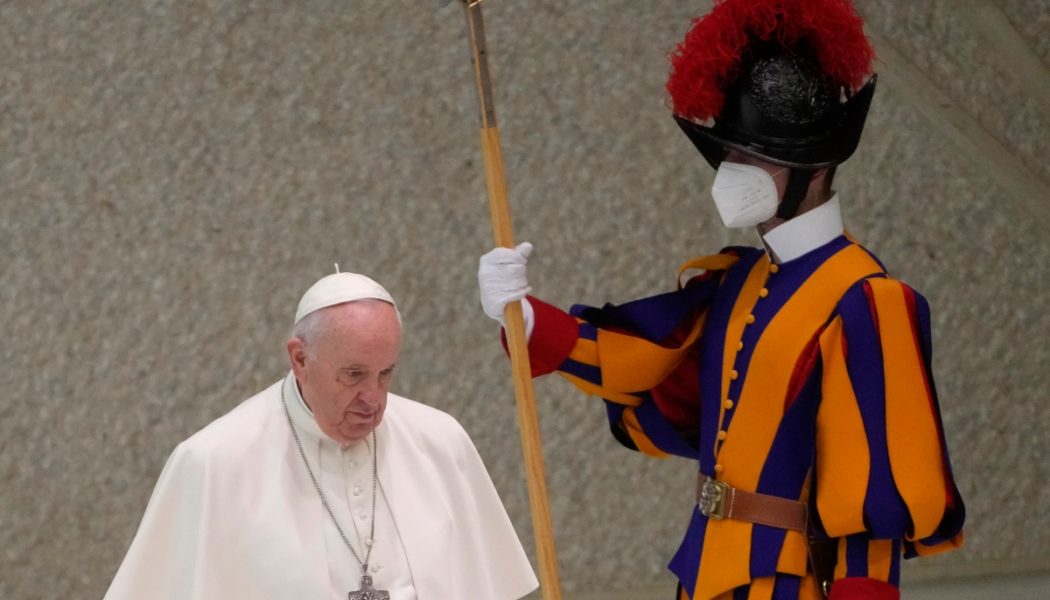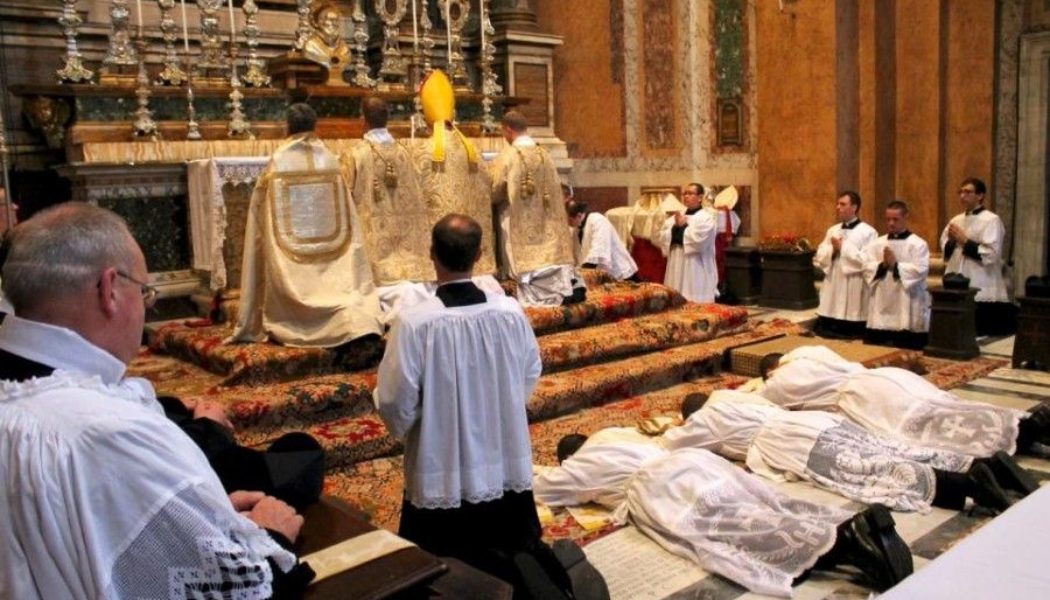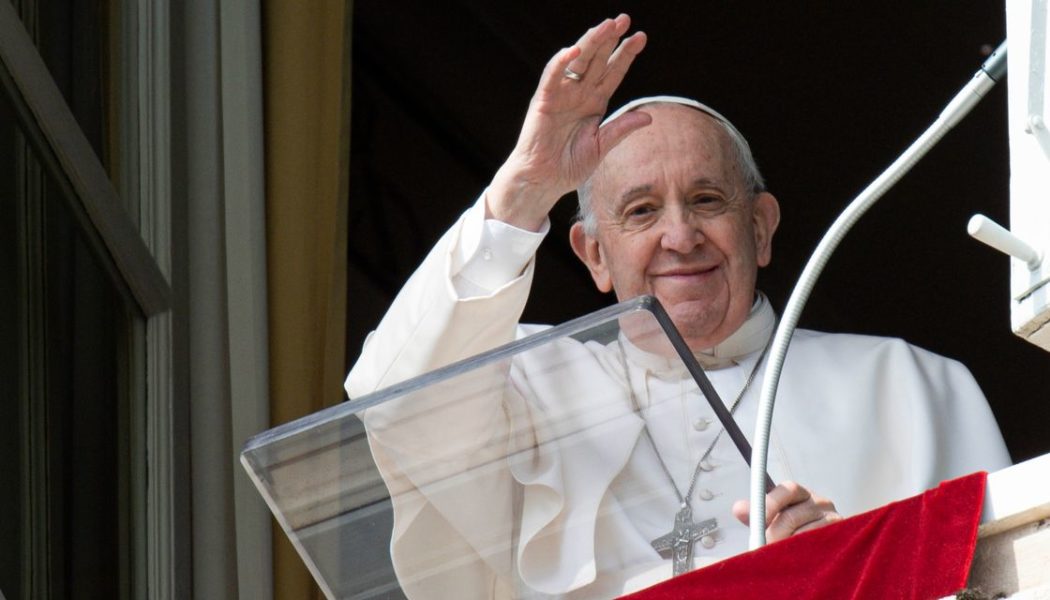Discover
When a Jewish musician named Hermann Cohen visited a Catholic church during Benediction, he never expected this to happen…
During his youth as an acclaimed pianist, Hermann Cohen — dubbed “Puzzi” by his adoring admirers — would have been the first to discount any notion that in 1858, he would become the first priest to lead a pilgrimage to the Shrine of Our Lady of Lourdes in France. As Carmelite Father Timothy Tierney explained in his biography, The Life of Hermann Cohen, from Franz Liszt to John of the Cross, Cohen was born to a Jewish family in 1821, in Hamburg, Germany, and grew up, steeped in the materialistic values of his father, a wealthy financier. God and eternal values were far from his mind. Following his conversion, Cohen later described in a sermon his futile search for happiness during his concertizing days and career, and said: I have sought it in the elegant life of salons, in the giddy pleasu...
The Pope’s use of authority becomes a new front in the Vatican ‘trial of the century’…
Listen to this story: ROME – As the dust began to settle last year on the Vatican’s troubled $400 million dollar land deal in London, and as the colossal dimensions of the failure it represents became clear, Pope Francis was determined to put someone on trial, including his former chief of staff, Italian Cardinal Becciu, along with nine other defendants. Yet, under the heading of “be careful what you wish for,” Francis could find that the primary person on trial ends up being not Becciu and the rest, but himself. That, at least, seems to be the new tactic defense lawyers rolled out Friday, when a Vatican tribunal led by veteran Italian jurist Giuseppe Pignatone conducted its latest hearing in a process that’s been underway for seven months and still hasn’t gotten anywhere close to consider...
Why Jesus spoke of prisoners as if He were a prisoner Himself…
It’s curious that Christianity cares so much for the good of prisoners. The world doesn’t really care for them. Not like the world cares for the poor, at least as a group. Christianity does. Not very much in practice, which is telling, but in theory. We care, though not enough, because Jesus cares. When He listed the five actions done for others that He considered done for Him, He included visiting the prisoner. The others were feeding the hungry, giving drink to the thirsty, taking in the stranger, and clothing the naked. Prisoners? Criminals? How do they go in that list? When Christians want to give an example of practical Christian charity, we tend to think of soup kitchens and homeless shelters. Not visiting prisoners. In all the sermons I’ve heard on this passage in Matthew, I d...
FSSP Says Pope Francis Has Confirmed Its Use of 1962 Liturgical Books…
An FSSP communique published Feb. 21 said that the Pope met with two members of the fraternity for nearly an hour one week before he promulgated a decree allowing their use of traditional liturgical texts. ROME — The Priestly Fraternity of St. Peter (FSSP) issued a communique Feb. 21 saying that Pope Francis promulgated a decree that will allow the traditional fraternity to continue to use the liturgical books in force in 1962. An FSSP communique published Feb. 21 said that Pope Francis met with two members of the priestly fraternity for nearly an hour, a week before he published the decree. The Holy See press office had not responded at the time of publication to a request from CNA to confirm the text of the decree. “In the course of the audience, the pope made it clear that institutes su...
Dunkology 101: How the NBA could take a more a scientific approach to scoring the slam dunk…
I grew up watching some of the greatest slam dunk artists in the world. Shawn Kemp was one of my favorites, because he was freaky athletic and dunked so powerfully. Plus, he seemed so nonchalant about everything. It made his dunks look effortless. Dominique Wilkins just jumped so high on every dunk. His limbs are long and he would windmill the ball so far around and then dunk hard on the rim like a sledgehammer. Kenny “Sky” Walker was my biggest inspiration, because I felt as if we jumped alike, and he did a lot of 360s. He swung and whirled the ball about, kicking his legs and dunking aggressively. That’s why I liked doing those 360s on a 6-foot-high rim back in the 1990s when I was in elementary school. I also drew inspiration from my dad. One day my dad and I were shooting baskets with ...
Working 9 to 5, conspiracy bingo, and the shipping news…
Happy Friday friends, Hope your week was alright. It’s Friday, week six in Ordinary Time. I have no thoughts about that, profound or trivial. It’s what it is. So here’s some news. Quick Links Earlier this week, Pope Francis made a number of changes to the codes of canon law for both the Latin and Eastern Churches. As promised, we went line by line, canon by canon to break down the changes and explain what’s going on and why it matters. So, whether you’re a judicial vicar who needs to swot up for a meeting with the boss, a diocesan bishop who wants to be able to look his JV in the eye with confidence during that meeting, or just a Catholic who understands that canon law matters, we have what you need. You can read our explainer here. — One of the key changes to the Code made by Pope Francis...
For Catholics with autism, here’s a map of sensory-friendly Masses in the United States…
One of the biggest steps the Church needs to do now to include autistics is making a sensory-friendly Mass in every city. Asking a few autistics I know, I have found a number of locations that have such Masses. I looked at the US and Canada. Here’s the map. I’ll explain the details below it. Details: This is presented as-is and to-the-best-of-my-knowledge. I cannot gurantee the information in the map. Each location has details and usually a link to the website. Some are specific areas like a reverse cry-room, some are special Masses explicitly sensory-friendly, and others are Masses that are the most sensory friendly in the area even if not done for that reason. Different locations use different terms. I will usually include this in the description. Not every one is every week. (Honestly, ...
Is the Pope Catholic? Yes, it turns out…..
The Catholic Church in America has found itself in an unexpectedly fractious pronoun war. In 2020 the Vatican decided that when a priest says “I baptize,” he does it validly, but when he says “we baptize,” the sacrament doesn’t happen. The issue has revealed a growing impatience among progressive priests with Pope Francis, whom they once claimed as their champion. He’s proved to be less of an ideologue, and more of a Catholic, than most church liberals had hoped. The precipitating event of the pronoun war was the resignation this week of an Arizona priest, Father Andres Arango. He’d been deviating from the official text of the baptism rite for 20 years, using the first-person plural to emphasize, he thought, the welcoming community of the Catholic Church. He baptized thousands of babies th...
This Sunday, sinners must love sinners the way God loves sinners…
Jesus gives the secret to peace on earth, happiness in your home, harmony in the Church, and eternal life this Sunday, the Seventh Sunday in Ordinary Time Year C. The bad news is, that secret is so repugnant to our fallen human nature we can barely force ourselves to even try it. “Do good to those who hate you,” Jesus says. “Bless those who curse you.” In short, “Love your enemies.” This is really, really hard to do. It means, “Do good to the person who works, hard, to utterly upturn your side of the COVID arguments over vaccines and masks.” It means, “Bless those who hate you because of who you voted for.” It means, “Love those who call you a bigot because of what you believe about marriage and gender.” Or, just as hard: “Bless those Catholics who undercut you and your friends...
Pope’s Sunday Angelus: ‘Why Turn the Other Cheek? To Defeat Hatred and Evil’…
“This is not easy, but Jesus did it and he tells us to do it too,” the pontiff said. “This is turning the other cheek: Jesus’ meekness is a stronger response than the blow he received.” Pope Francis warned against keeping rancor in our hearts which hurts and destroys. He acknowledged that some people question whether it is possible for a person to love his or her enemies. “If it depended only on us, it would be impossible,” he said. “But let us recall that, when the Lord asks for something, he wishes to give it. When he tells me to love my enemies, he wants to give me the capacity to do so.” “What should we ask of him? What is God happy to give us?” the pope asked. “The strength to love, which is not a thing, but rather the Holy Spirit, and with the Spirit of Jesus, we can respond to evil ...
‘Rain’ of birds in viral video from Mexico is not an apocalyptic sign, priest says…
By David Ramos Ciudad Cuauhtemoc, Mexico, Feb 18, 2022 / 17:00 pm A recent video of a flock of blackbirds suddenly plummeting to the ground in Mexico should not be in any way taken as an apocalyptic sign, a priest has noted. The Feb. 7 video recorded in Ciudad Cuauhtémoc, in Mexico’s Chihuahua state, shows the flock falling down, and many of the birds not getting back up. Father Mario Arroyo, a a professor at the Pan-American University in Mexico City, told ACI Prensa, CNA’s Spanish language sister news agency, Feb. 16 that while “the images are really chilling … going from there to seeing an apocalyptic image, a sign from heaven that warns us of the end of the world, is really quite a considerable acrobatic leap.” Join Our Telegram Group : Salvation & Prosperit...
What happened to St. Maximilian Kolbe’s beard? The answer may surprise you…..
The second reason is that Kolbe’s beard is the only first-class relic that exists of him. The rest of his body was incinerated in the ovens of Auschwitz after he was murdered by the Nazis in 1941. Father James McCurry, a Conventual Franciscan and minister provincial of the Our Lady of the Angels Province, gave a homily in 2016 commemorating the 75th anniversary of Kolbe’s martyrdom in which he mentioned the saint’s beard. McCurry, author of the book “Maximilian Kolbe: Martyr of Charity,” said that Kolbe chose to keep the beard upon his return from six years of missionary work in Japan. In those days, it was customary for missionaries to grow long beards, and Kolbe wanted to keep it as a reminder of his missionary days, and as a reminder to always be a “missionary” of the Gospel. McCu...

















